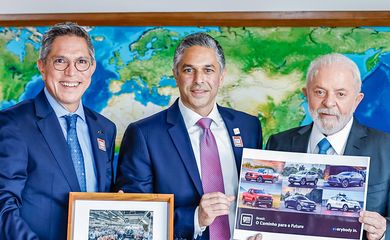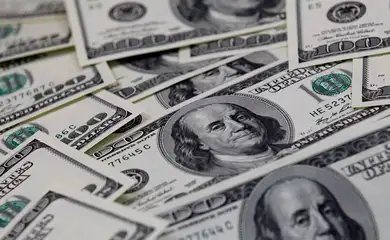Investment in Brazil’s auto sector to reach BRL 100 bi by 2029

The Brazilian automotive sector is expected to receive around BRL 100 billion in investment over the next few years. The figure, unveiled by representatives of auto makers’ association Anfavea to Brazilian vice-President and Minister of Development, Industry, Trade, and Services Geraldo Alckmin, was announced Wednesday (Feb. 7) by the minister in an interview on Canal Gov.

Alckmin met Tuesday (6) with Anfavea head Márcio de Lima. During the assembly, he said the total to be invested in the Brazilian automotive industry will exceed the BRL 41.2 billion reported the previous week.
“At the meeting I had with Anfavea representatives, the expected BRL 100 billion total over the next few years was announced, probably by 2028 or 2029, both for light and heavy vehicles, such as buses and trucks, and in combustion engines as well as ethanol, full flex, hybrid, and electric,” he said.
“It will be a record investment,” Alckmin noted, which should result in the construction of at least four factories.
“We already have an electric bus factory. We will also have two electric car factories. There are two automakers: BYD [the Chinese company that took over the industrial complex that belonged to Ford] in Camaçari [Bahia state], and GWM [Great Wall Motors, also Chinese], in São Paulo. But others will come,” he added.
The minister pointed out that one of the main features of the car sector is that it stimulates a long chain of products that benefit everyone in the industry, from steel and glass to tire and auto parts, “generating a lot of jobs and added value.”
“This will be facilitated by the recovery of the economy,” said the minister, who went on to mention that investment is brought by initiatives such as the National Green Mobility and Innovation Program, which has expanded the sustainability requirements for the domestic automotive fleet in order to decarbonize vehicles through tax incentives.
“Two pieces of good news should boost sales in the auto industry. The first is a lower Selic [Brazil’s benchmark interest rate], which should continue on the wane; the other is the Guarantee Framework, approved by Congress. In other words, if [a company] sells a car and the buyer doesn’t pay for it, now with the Guarantee Framework you can get the car back,” he said.





